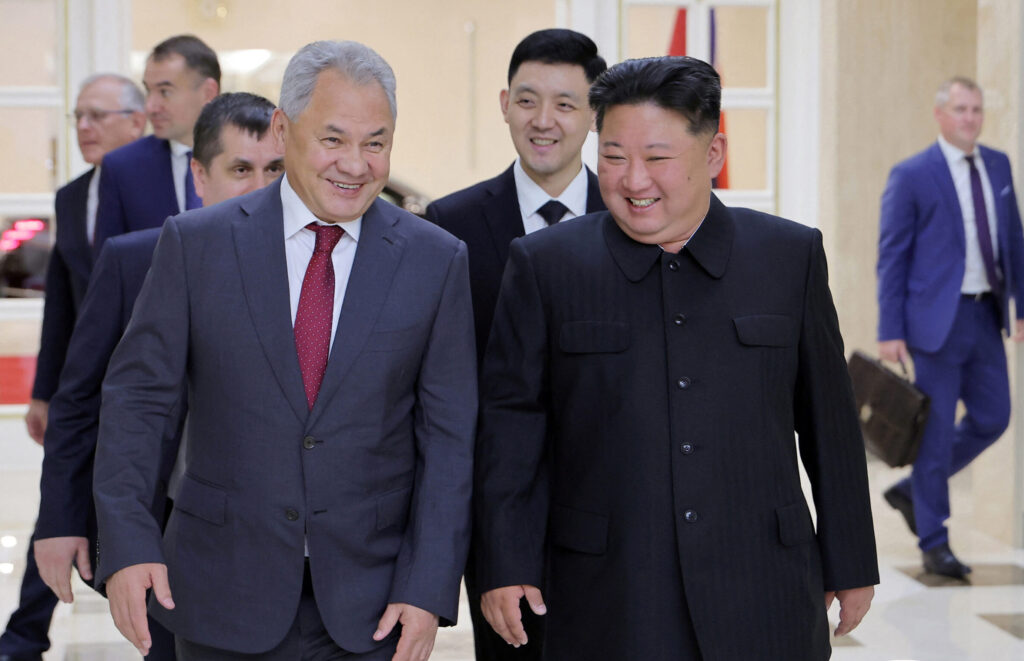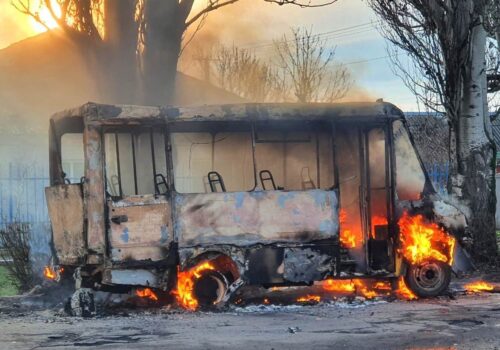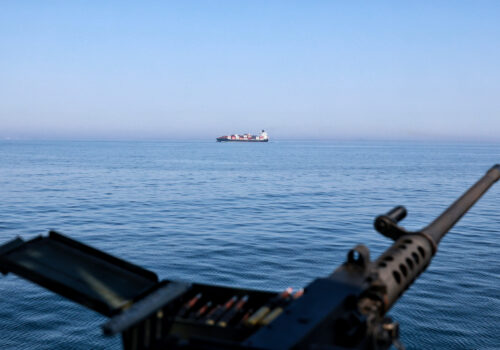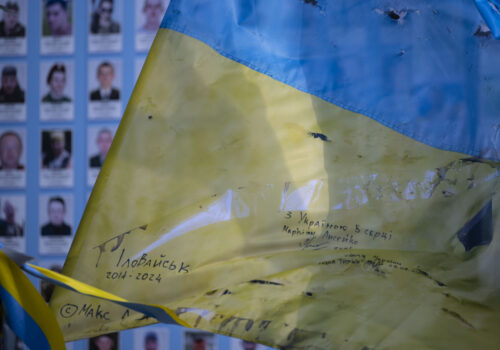North Korea has agreed to send thousands of additional construction workers and engineers to Russia in the latest indication of deepening military cooperation between Moscow and Pyongyang. The plans were announced on June 17 following a meeting between North Korean leader Kim Jong-un and Sergei Shoigu, the former Russian Defense Minister who now serves as secretary of the country’s Security Council.
According to Shoigu, North Korea will send two brigades of “military construction workers” totaling five thousand men, along with a further one thousand combat engineers. They will reportedly conduct demining operations and help repair war damage in Russia’s Kursk region, which borders Ukraine and witnessed months of heavy fighting following a Ukrainian incursion in August 2024.
This is the latest step in an ambitious defense sector partnership between the two countries that has taken shape over the past three years. Since the early months of Russia’s full-scale invasion in 2022, North Korea has provided the Kremlin with extensive military supplies. More recently, this cooperation has expanded further with Pyongyang sending thousands of soldiers to participate directly in the war against Ukraine. Russia and North Korea signed a strategic partnership treaty in summer 2024.
Stay updated
As the world watches the Russian invasion of Ukraine unfold, UkraineAlert delivers the best Atlantic Council expert insight and analysis on Ukraine twice a week directly to your inbox.
The deployment of North Korean troops to Russia was first reported in late 2024, with at least 10,000 North Korean soldiers believed to have taken part in combat operations in Russia’s Kursk region. According to a recent UK Ministry of Defense intelligence update, North Korean forces sustained more than 6,000 casualties during fighting against the Ukrainian military, representing around half of the original deployment. This is an indication of the prominent role played by the North Koreans in front line combat operations.
Russia initially denied the presence of North Korean soldiers. However, following significant battlefield progress in spring 2025, both Moscow and Pyongyang moved to publicly acknowledge the role played by North Korean troops in pushing the Ukrainians out of the Kursk region. Reports indicate that they served as assault units operating on the front lines of the Russian offensive, which would certainly tally with the high North Korean casualty rates claimed by the British.
This North Korean presence is having a significant impact on the battlefield. Ukrainian military officials who have encountered North Korean troops on the front lines of the war acknowledge their ability to learn quickly and incorporate new tactics based on their expanding combat experience in Russia. “They have adapted to modern combat conditions,” commented Ukrainian commander Oleh Shyriaiev. This has included significant progress in terms of drone warfare.
Eurasia Center events

The appearance of North Korean troops fighting alongside Russian forces came following more than two years of increasing military cooperation marked by expanding deliveries of North Korean ammunition and equipment to bolster the Russian war effort. This support has played a critical role in aiding Moscow’s invasion of Ukraine. A Reuters investigation published in spring 2025 indicated that North Korea was providing more than half of all artillery shells being used by the Russian military in Ukraine.
North Korea is also supplying Russia with significant quantities of ballistic missiles, according to a May 2025 report produced by the Multilateral Sanctions Monitoring Team comprising eleven countries including the United States, Britain, Japan, and a number of EU member states. The report concluded that Russia is using North Korean weapons to escalate airstrikes on critical Ukrainian civilian infrastructure and to “terrorize” entire Ukrainian cities.
In exchange for providing the Kremlin with manpower and a steady flow of munitions, North Korea is receiving Russian assistance that is enabling the country to modernize its military. Reported upgrades in North Korean military capabilities through cooperation with the Kremlin include Russian funding for North Korean military programs along with the provision of air defense equipment and anti-aircraft missiles, advanced electronic warfare systems, and the further development of North Korea’s ballistic missiles.
By providing Russia with ballistic missiles for attacks on Ukraine, North Korea has gained unprecedented experience in modern warfare. This is making it possible to increase the accuracy of North Korea’s existing missile guidance systems. With Moscow’s help, North Korea is also developing attack drones similar to those used by Russia to strike Ukrainian cities, according to Ukrainian military intelligence chief Kyrylo Budanov.
The modernization of the North Korean army poses a range of potential security challenges for South Korea and the wider region. North Korea’s participation in Russia’s war against Ukraine is also seen by many as a dangerous escalation toward a more international confrontation.
So far, North Korean soldiers appear to have only participated in combat operations inside Russia. However, Kyiv officials have voiced concerns that the North Koreans could soon be redeployed to Ukraine itself to join Russia’s ongoing summer offensive. Given the lack of a forceful Western response to Pyongyang’s increasingly open involvement in the Russian war effort, such concerns seem more than justified.
Olivia Yanchik is an assistant director at the Atlantic Council’s Eurasia Center.
Further reading
The views expressed in UkraineAlert are solely those of the authors and do not necessarily reflect the views of the Atlantic Council, its staff, or its supporters.

The Eurasia Center’s mission is to enhance transatlantic cooperation in promoting stability, democratic values, and prosperity in Eurasia, from Eastern Europe and Turkey in the West to the Caucasus, Russia, and Central Asia in the East.
Follow us on social media
and support our work
Image: North Korean leader Kim Jong Un meets with Secretary of Russia's Security Council Sergei Shoigu, in Pyongyang, North Korea. June 17, 2025. (KCNA via REUTERS)





